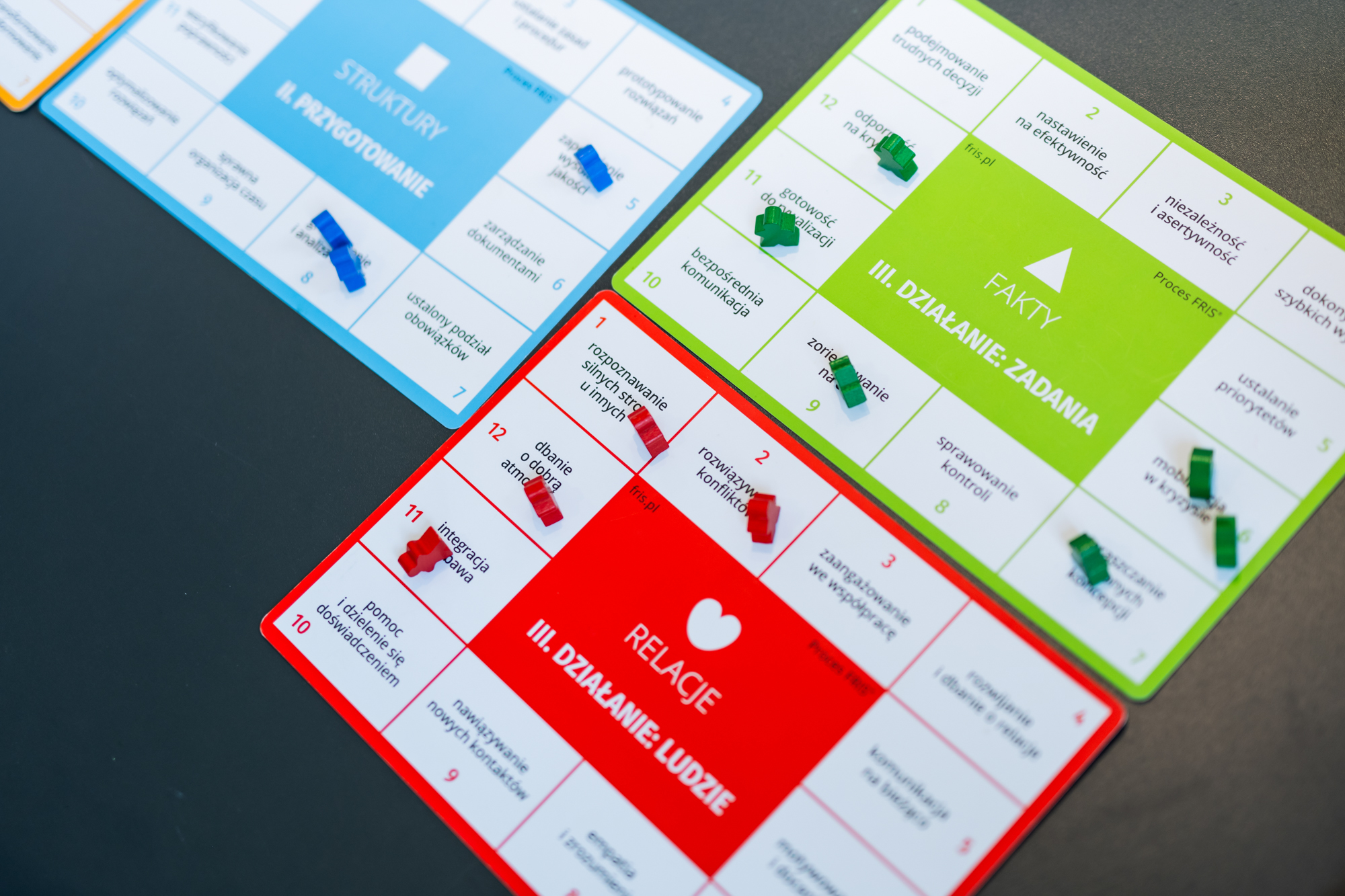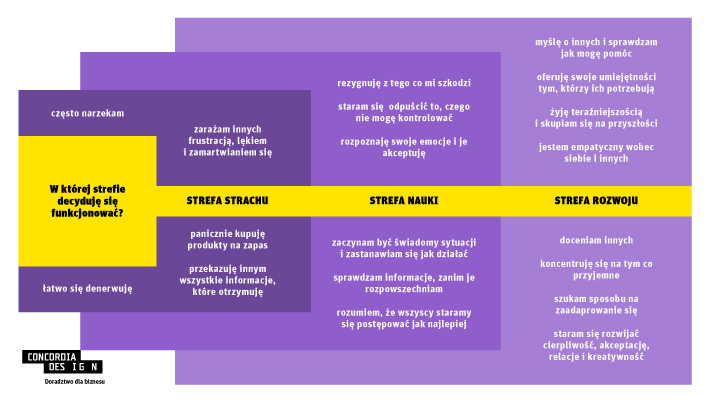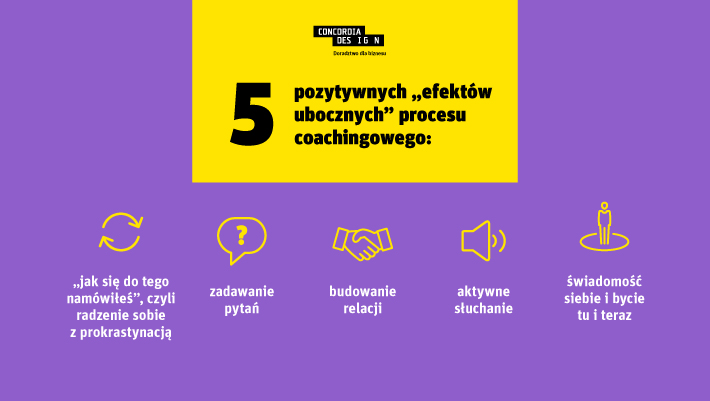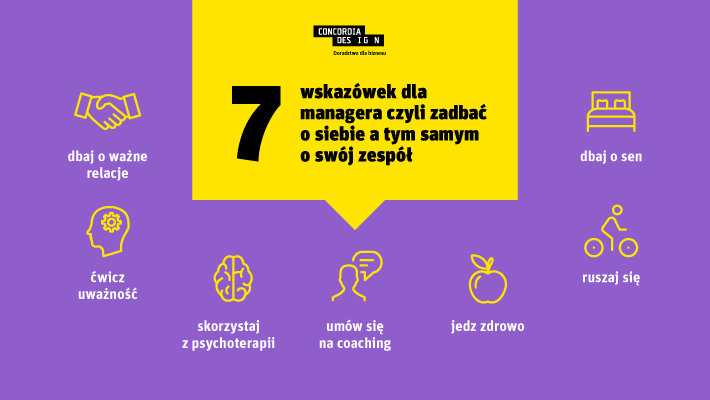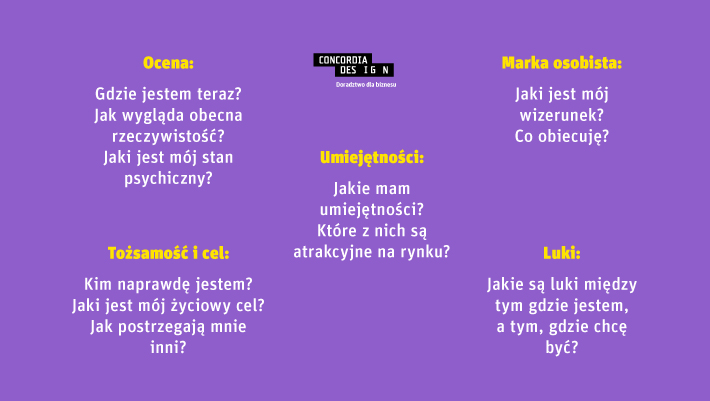Another year has passed since the hitherto predictable (or at least seemingly so) world as we know it turned the order upside down. The onset of the pandemic, trying to find our way in the new reality, dealing with uncertainty in different contexts of life, the war in Ukraine, rampant inflation - all this has become the new normal for us. The situation has, in a way, forced us to do what Gestalt psychotherapists call creative adaptation , i.e. to use available resources while taking into account limitations. In other words, almost all of us had to ask ourselves how we should continue to function in this reality and adapt new or at least modified actions and behaviors. During these several months we have seen a significant increase in the demand for psychotherapy, large organizations have expanded their benefits package to include visits to psychologists, the topic of mental resilience has gained notoriety, and employees have been provided - not all, of course - with tools to support them in working remotely. Plus a rash of webinars, podcasts, online courses - knowledge at the fingertips of anyone who wants it. And for free! One could say that a lot has really been done by the development-education-support community. But in the maze of topics and daily challenges, have those who manage companies and teams found time for this? Have they managed to take care of themselves? In an era of uncertainty, the question of how to support the business through the crisis with managerial development in mind has begun to arise, and how to reach out to those who are responsible on a daily basis for both business goals and team relations, and who are not at all magically spared by the current situation. They are in it, just as the whole world is. Often, however, in a sense of loneliness, permanent fatigue and on the verge of exhaustion both physically and mentally.
Changing environment requires empowerment
The topic of change, how timely it is now, also touches the business world, where for some the pandemic situation meant declaring bankruptcy, for others the struggle for survival and for still others - booming business. And, as is usually the case, it is on entrepreneurs, administrators and managers that a huge responsibility rested for the continued operation of companies. In view of this, in the current situation, is it worth continuing to invest in managers? Since the situation is generally difficult, is it worthwhile to engage the valuable time of key employees and spend resources on development for them? The answer is definitely yes!
A nationwide HR survey conducted in late August and early September by the Talent Development Institute and Adventure for Thought on nearly 100 companies in Poland proves which competencies are proving to be the key realities of today. This means that not only should the development of managers not be held back, but it is necessary to provide them with conditions for building priority competencies. The study classifies managers into three levels:
- Top Management,
- Middle Management and
- First Time Management. For all of these groups, the ability to motivate and buildengagement was identified as one of the most important competencies for the next six months. This is probably due to the challenge faced by teams and their supervisors in a situation of long-term remote work and managing a distributed team. The second - common to all the above-mentioned management groups - competence ismental toughness , also known as resilience. Personally, I am glad that the topic of taking care of mental health has swept into the business world and is considered a priority today. This shows how important it is nowadays to take care of one's mental strength and how great an impact it has on the functioning of teams and the business outcome. Another common competence in the TOP 3 - this time for senior and middle managers - is managerial courage. That is, among other things, how to make courageous decisions without complete and certain data, and the issue of confidence in one's role as a manager. Courage
managerialism also applies to so-called unpopular activities in the organization and to being authentic or working in accordance with one's values.
For lower-level managers, results orientation was indicated in third place.
Challenges of managers
What do the higher indicated research results particularly point to?
First and foremost, managersneed to focus not only on business goals andteamsbutalso on themselves. While motivating and building employee engagement is primarily a series of skills, mental resilience and managerial courage is primarily a matter of an individual's attitude to an external situation, something we call attitude. And this is what managers need to work on today, including supporting them and creating conditions for them to see in the current situation not only threats but also opportunities - for the business and for themselves. Many of them have been facing enormous challenges for several months. They are tired, exhausted, pressed from two sides (by their superiors and by members of the teams they manage). On top of all this, there is often a noticeable lack of work results: because sales are still at insufficient levels, because turnover has increased, because plans to enter a new market have not been realized. It is hardly surprising that managers sometimes find it difficult. For many teams, constant remote work is also a hindrance. Many companies - especially global corporations - still recommend working from home. For employees, this means no direct contact with each other for many months. Managers have been put in a position of having to trust their people, without the ability to be as controlling as they were used to. A common theme I encounter when conducting coaching processes for managers is precisely about letting go of control in favor of trust. In doing so, more and more organizations are learning that employees should be held accountable for the results of their work, not for the time spent in it.
Another current challenge for managers is to keepemployees motivated andengaged on the one hand, and tokeep them in the organization on the other. The pandemic has shown many people that they can work remotely, that an office is not necessary. Many organizations
decided not to pay overtime, allowing only overtime pickup. What did this result in? Some people in this situation began to calculate. Does it pay to work longer hours when no one will pay for it anyway? Isn't my time valuable? Or can I manage to do something during this time that gives me more satisfaction, that develops me more and for which - perhaps - someone will pay me more? In my personal opinion, the pandemic has become a kind of training ground for many, where they practice setting boundaries, taking care of themselves and the values that are important to them and even functioning in the market as freelancers. So how do we retain valuable employees while at the same time passing the buck on their commitment and motivation? Research by the Gallup Institute (2014) indicates that a deluge of 13% of employees are trulycommittedto doing their jobs (the rest - 63% - are those who do the bare minimum necessary, and 24% are described as actively unengaged, meaning they tend to complain excessively, aggravate the atmosphere and tease the others into thinking negatively about work). According to the researchers, among other things, a sense of meaning in one's work, a sense of agency, the ability to take responsibility for one's tasks or independence are factors that support the building of commitment. A manager should therefore - with this knowledge - adjust his actions towards the team so that the above aspects are taken into account in daily work.
In turn, the fifth round of research on the adaptation of Polish companies to the pandemic conducted by Kozminski University, conducted at the turn of 2020/2021, provides further interesting insights. Here are some of them:
The public has become accustomed to working remotely, knows the pros and cons of this solution, and there is an understanding that hybrid work will be a permanent part of our daily lives.
Workers and managers alike are tired of operating in the current situation. They express concern that "the psychological costs of the pandemic may be yet to come."
Some companies have allowed their employees to return to their offices, working in a hybrid system. On the one hand, this strengthens cooperation, on the other hand, it requires a lot of work on the part of managers to ensure safety and comfort.
Supporting managers
The responsibility that lies on the shoulders of managers today is enormous. So the question should be asked: how do we support them? And if we answer in the affirmative, let's ask another one: if we reach for the familiar - multi-stage, time-consuming leadership development programs - will we really help managers overcome current difficulties? In my opinion - based on constant cooperation with this group but also with entrepreneurs in various industries - the answer is no. This is not what managers need today. With the momentary current epidemic relaxation, the pulling down of strictures, when the public can, wants and needs to breathe freely (not just without a mask) two issues seem to be particularly important: rest and reflective learning. The first is essential for healthy functioning. The second helps to draw practical lessons from experience with a plan for implementing what works and optimizing what is worth implementing with some improvements. An example of this is the remedy developed by one of my clients for feeling overworked, confined at home and staring at a computer screen for up to a dozen hours a day. The solution - it might have seemed trivial - that the client worked out was to move some of the conversations to the park. How? Instead of connecting via Zoom or another instant messenger, the manager arranges a phone call with the employee and encourages the employee to step away from the computer - it could be a walk, it could be going out on the terrace or to the home garden. Seemingly a small change, but it allows you to take care of your health, gives your eyes a rest and, at the same time, creates a chance to change perspective and get closer in the relationship.
Today is the right time to strengthen mental strength, to be supported in overcoming difficulties - including emotional ones, to learn from experiences in such a way that, when faced with the next wave or the next crisis, we pay as little health and emotional cost as possible. So that these difficult experiences provide the impetus to become stronger and better in one's role. Only when we have a well-groomed (in the psychological sense) manager will he take proper care of his people and the effective realization of goals.
So how to supportć dziś managers?
The options are actually many - the most important thing is to set aside time for it. Managers and HR departments can look for support in development both in group meetings such as formula
Action Learning, as well as in one-on-one meetings. What particularly helps managers today are coaching processes centered around topics related to building mental toughness and taking care of oneself, as well as working on individual leadership style. So-called managerial supervisions, during which managers look at their role and how best to fulfill that role, are becoming increasingly popular. There are times when psychological support in the form of psychotherapy will be needed if a manager is overburdened for a long period of time.
What works particularly well today is periodic meetings between the HR Business Partner and the manager he or she works with. Meetings where, in addition to discussing the current situation in the team, you can set aside some time to catch your breath, talk about emotions, about what is difficult, as well as what can energize the manager. It is important that the HRBP is prepared for such meetings not only on the substantive side. Equally important here is well-being, the way the relationship is built, and empathy and acceptance on the part of the Business Partner. When we create the right conditions for the other person, he or she can work through difficulties more effectively and draw energy for further action. By the same token, it is worth remembering that failure to take care of oneself (both in the role of HRB and in the role of manager) can lead to professional burnout and even depression. One question that often hits overworked people is "what could you do less of?". Often behind the answer to this question is the need to learn to let go and reprioritize.
The above examples represent different forms of support and development. You should think carefully about which form will be best for me or my manager (if, for example, you have a role in the organization as an HR Business Partner). However, keep in mind that all of the above options are more or less time-consuming. And the main deficit in a manager's work is nothing but time. So you can reach for some simple tips, where most of them do not require a significant time investment.
Also read: Safety first.
On how to empower managers in challenging times.
7 tips for a manager, or how to take care of yourself and thus your team
The first three tips relate to the slogan eat, move, sleep. These three activities are the basis of function, and it is on the quality of our sleep, how we take care of our bodies and what we eat that our productivity, energy and attitude will depend. For example: since the brain is made up of 80% water, how will it work if we don't supply our bodies with enough water? Similarly with sleep: how can we be productive at work and support others in their work if we are affected by the problem of getting enough sleep? After all, it has not been known for a long time that sleep deficiency affects reduced concentration, promotes the development of diabetes, obesity, depression, anxiety and also disorders of emotional states.
The next two pieces of advice relate to working in a one-on-one relationship with a coach or psychotherapist. Depending on the topic and its importance, it is worth considering who can support me with my problems and/or challenges. With a professional coach with a psychological background, topics related to emotions, dealing with pressure and stress and even symptoms of burnout can also be addressed. It is also worthwhile to go to a psychotherapist with the above topics, especially when an additional symptom is, for example, long-term lowering of mood, insomnia, loss of meaning in life. Therapy, however, is in its assumptions a long-term process in contrast to the coaching process, which usually closes in a few dozen sessions.
Mindfulness is another point on the path of taking care of oneself. According to research, practicing mindfulness on a regular basis has an impact on stress reduction, more effective coping, sleep quality, concentration, emotion regulation, and acceptance and half-feeling towards others. A 2012 study by a team of researchers at the University of California Santa Barbara found that even a two-week course of mindfulness improves cognitive function. So it's worth finding a moment during the day to stop, focus on your own breathing, focus on the present moment, on the here and now. This can be helped by available smartphone apps or watches that remind you, for example, to be mindful for a minute.
The last element - touching directly on both professional and personal life - is taking care of important relationships. The quality of the relationships we build and create affects the quality of life. Why? According to the findings of Danish researchers at Copenhagen University Hospital, it appears that loneliness doubles the risk of premature death - the reason being heart disease. Loneliness as understood by the researchers refers to the lack of proper connection with people. Relationships affect not only health, but also well-being and how we feel about the world. Referring to Martin Buber's philosophy of dialogue, he argued that "a person becomes a person only in relation to You" (M. Buber, I and You, p. 31.) and "only when the individual recognizes the other in all his otherness as himself, as a human being, and thus breaks through to the other, then - in this close and transient encounter - he will break through his loneliness" (M. Buber, The Problem of Man, translated by R. Reszke, Warsaw 1993, p. 126). In other words, we need the other to break the feeling of loneliness in the world, loneliness at work, loneliness as a manager. Building and nurturing relationships that are important to us seems to be what is necessary for healthy functioning, which in business reality gives you the ability to also take care of your team and the goals that are to be achieved.
Safety first - taking care of yourself as an expression of caring for others
Those who have ever traveled by air may recall the instruction given each time by the crew just before takeoff. One of the elements of this training is to show what to do when the masks fall off the heads. In a situation where you are flying with a child, the mask should be applied first to yourself anyway: "If the cabin pressure rapidly
falls off, the oxygen masks will fall off automatically. Passengers traveling with children put the mask on themselves first and then the child."
Why should the parent/guardian take care of himself first? Because only then will he/she be able to take care of the child. It is no different with managers. Safety first. Take care of yourself, and you will take care of your team, your bottom line, your business, and the values that are important to you at work and in your personal life.
Jacek Jokś
Master Certified Coach MCC ICF, consultant, psychotherapist in training process
Article published in HR Business Partner magazine, No. 23, July 2021.

